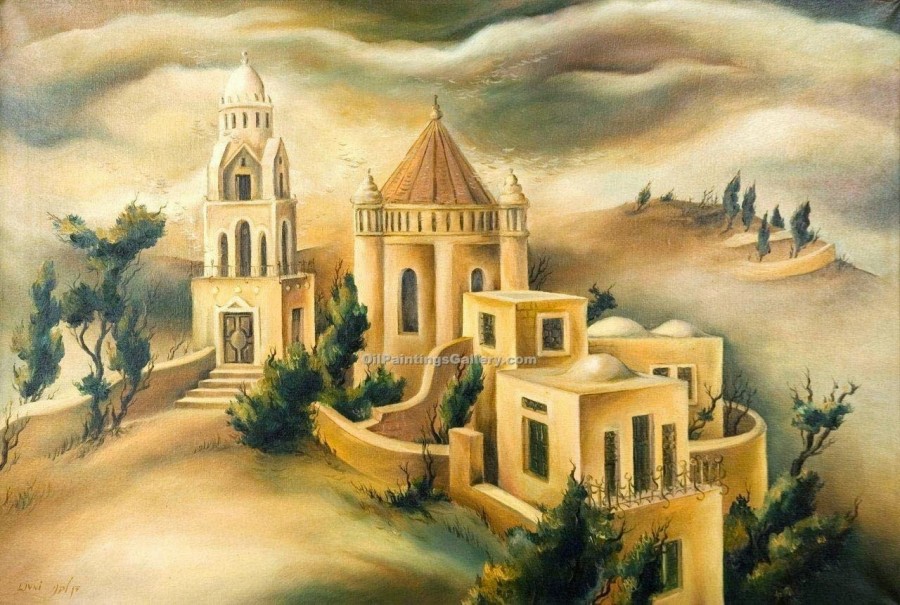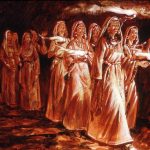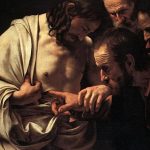
28th Sunday’s Commentary
 |
| Mount Zion, by Dan Livni |
This week I would like to focus my commentary on the first reading, paying particular attention to the Hebrew text and to Jewish interpretation.
The Lord of hosts will prepare on this mountain a banquet. This mountain is Mount Zion, the eschatological mountain where God will reveal Himself to all the nations of the world at the end of time. The word banquet, in Hebrew mishte, means a meal where people also drink, and of course not only water. Then the text reveals the content of the banquet, without using the words “meat” or “wine”. The three words important to our understanding of this banquet are shemanim (“oils”, rich oils) and shemarim (“fermented”) and mezuqaqim (“distilled”) drinks.
And the Lord will swallow death. The Hebrew could have used “destroyed,” so why use swallow? Swallow makes one think again of eating food and letting it go straight to where it should go. This could mean that the death will not simply be destroyed, but assimilated, integrated as a part of the human journey.
And then the Lord will wipe the tears from all the eyes…only after having swallowed death? From these words Jewish tradition deduces that people will rise with traces, or scars, of their suffering (like Jesus who shows his wounds after rising from the dead) as an identification of their own journey. Only then will the Lord wipe their tears.
Finally, everyone will be able to say: this is the Lord ; consciously or not, we were hoping in him, but now we know that he is our saviour: Let us be glad and rejoice in his salvation.
Let us be glad and rejoice (nagila ve-nismeha): This invitation can be found three times in the Bible, one of them in the Psalm 118,24: This is the day that the Lord has made, let us rejoice and be glad in it. A Jewish commentary applies it to the eighth day of Sukkot, which is a day between heaven and earth, an eschatological day, the eighth day… (By the way, in few days we will reach this eighth day of Sukkot!)
In the gospel, Jesus uses this biblical theme of a banquet as the starting point for a parable about the Kingdom: The king, the Father, Invites guests for the wedding of his son (Jesus). Many refuse and go so far as to kill the servants who bring the invitation. So the king sends new servants to bring everybody to the feast, the good and the bad.
What should we think of the poor one who was not properly dressed? Perhaps he had no money to buy a nice dress. But we know that quite often the poor know how to feast and are ready to pay the price, taking from their necessities or borrowing money in order to celebrate.
Possibly, this one came to enjoy the food of the banquet but was not interested in joining the joy of the groom and the bride. He did not intend to really celebrate a wedding and so did not bother to dress properly for it.
And what about us? We must be aware of all the daily small banquets that he Lord is offering to us; primarily the Eucharistic banquet, making us attuned with joy to those many occasions, and in doing so, preparing ourselves for the eschatological banquet. We should also be open to allowing anyone to join in, being sure that the Lord is always fully satisfying every need of ours according to his riches in Christ Jesus (second reading).
The Lord is my shepherd I shall not want…(Ps 23) Let us rejoice and be glad in him.






